Category: Human Development
-
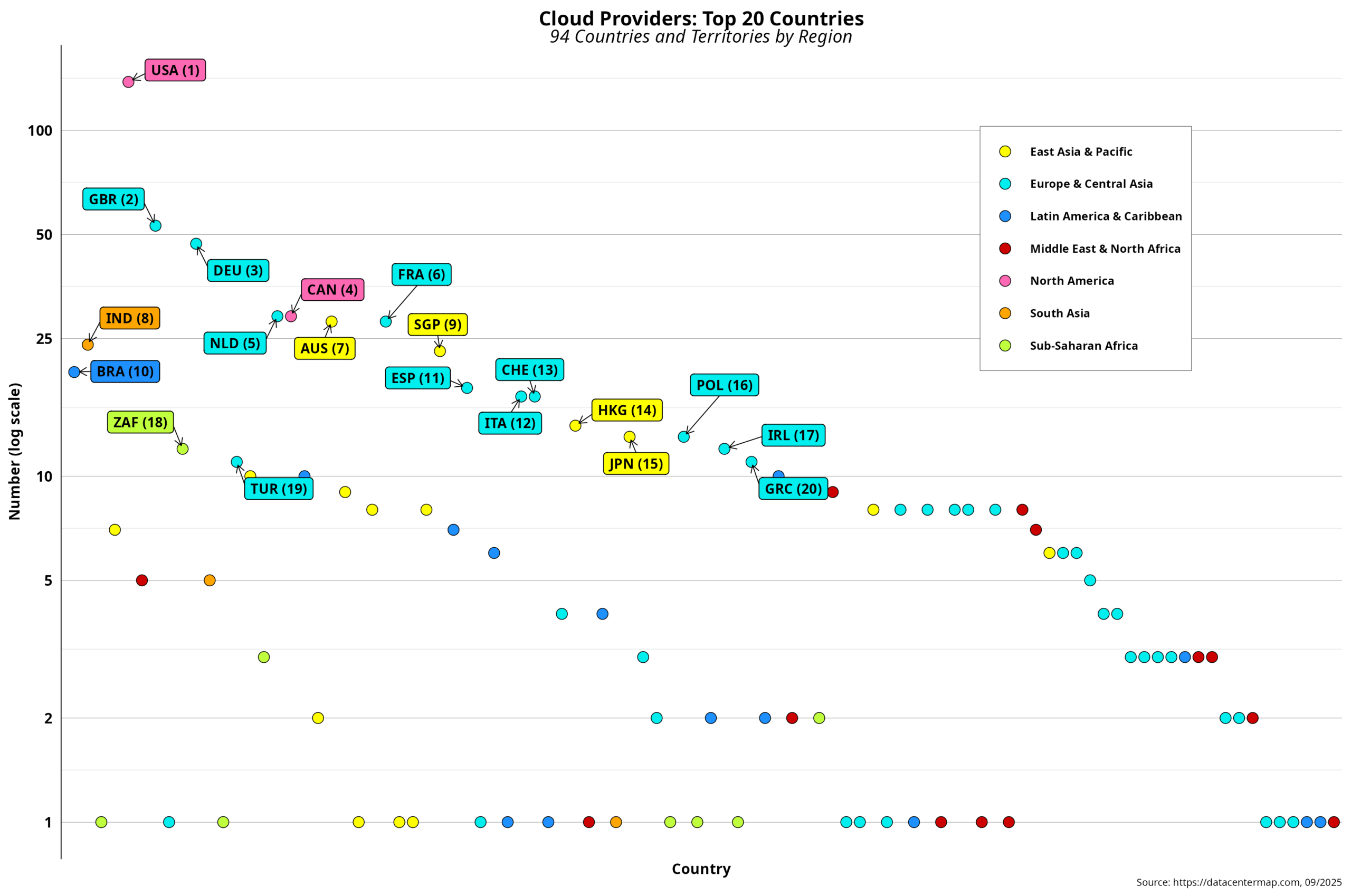
Clouds in the Cloud – II
Talk about an ongoing AI bubble seems to be getting louder by the minute. As previously mentioned, estimates indicate that by 2030, close to 7 trillion USD will be invested in the sector—assuming the bubble will not burst in the interim. Most of this massive investment is expected to go toward digital infrastructure, led by…
-
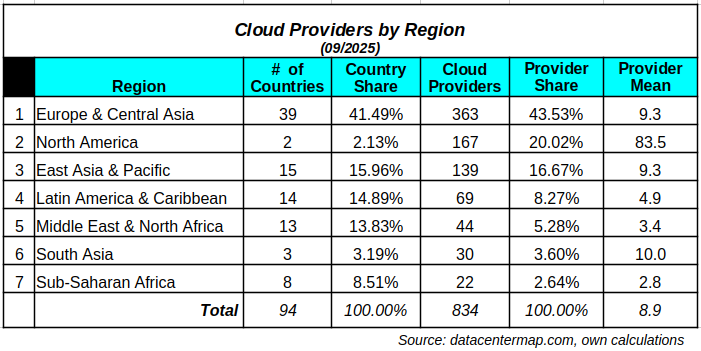
Clouds in the Cloud – I
Now that we have a clearer picture of the uneven distribution of data center locations, we can take a closer look at cloud providers. The first step here is to conceptually differentiate between data centers and cloud providers. Recall that the business literature states that cloud providers are one of the five types of data…
-
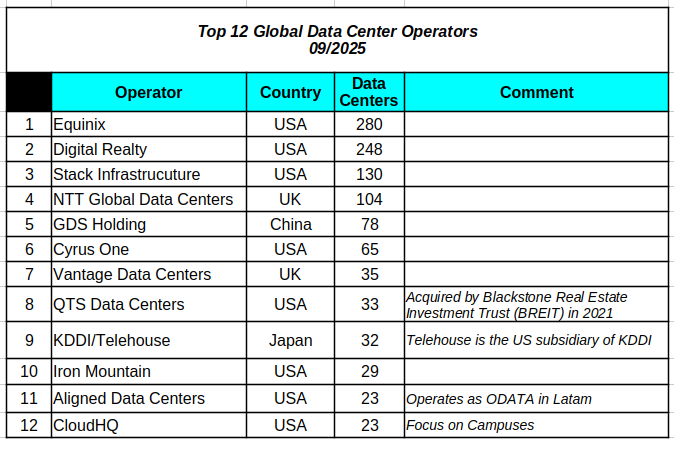
Data Center Centralization – IV
The last time I visited Eswatini was in late 2019, three months before the COVID-19 pandemic almost brought our collective imagination to a halt. Digital government support was the excuse for the business trip. I had been there a couple of times before and was thus familiar with the territory. Elections held the previous year…
-
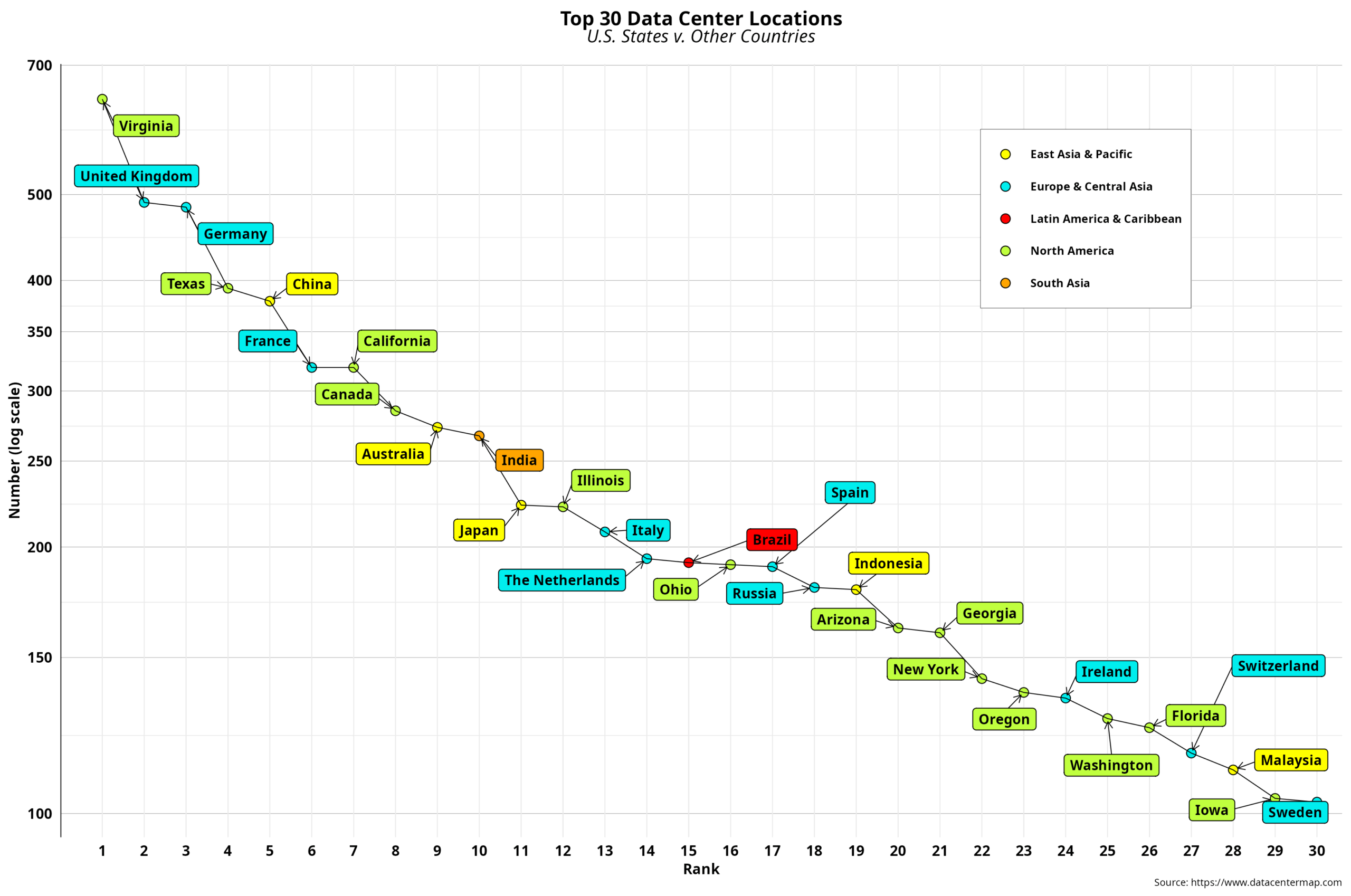
Data Center Centralization – III
Country data typically provides a comprehensive macro overview of the current status of a particular theme, such as data centers in our case. The same goes for CO2 emissions, for example. On the other hand, countries are geographical abstractions that posit the topic within well-defined boundaries, where a national state exercises its sovereignty to the…
-
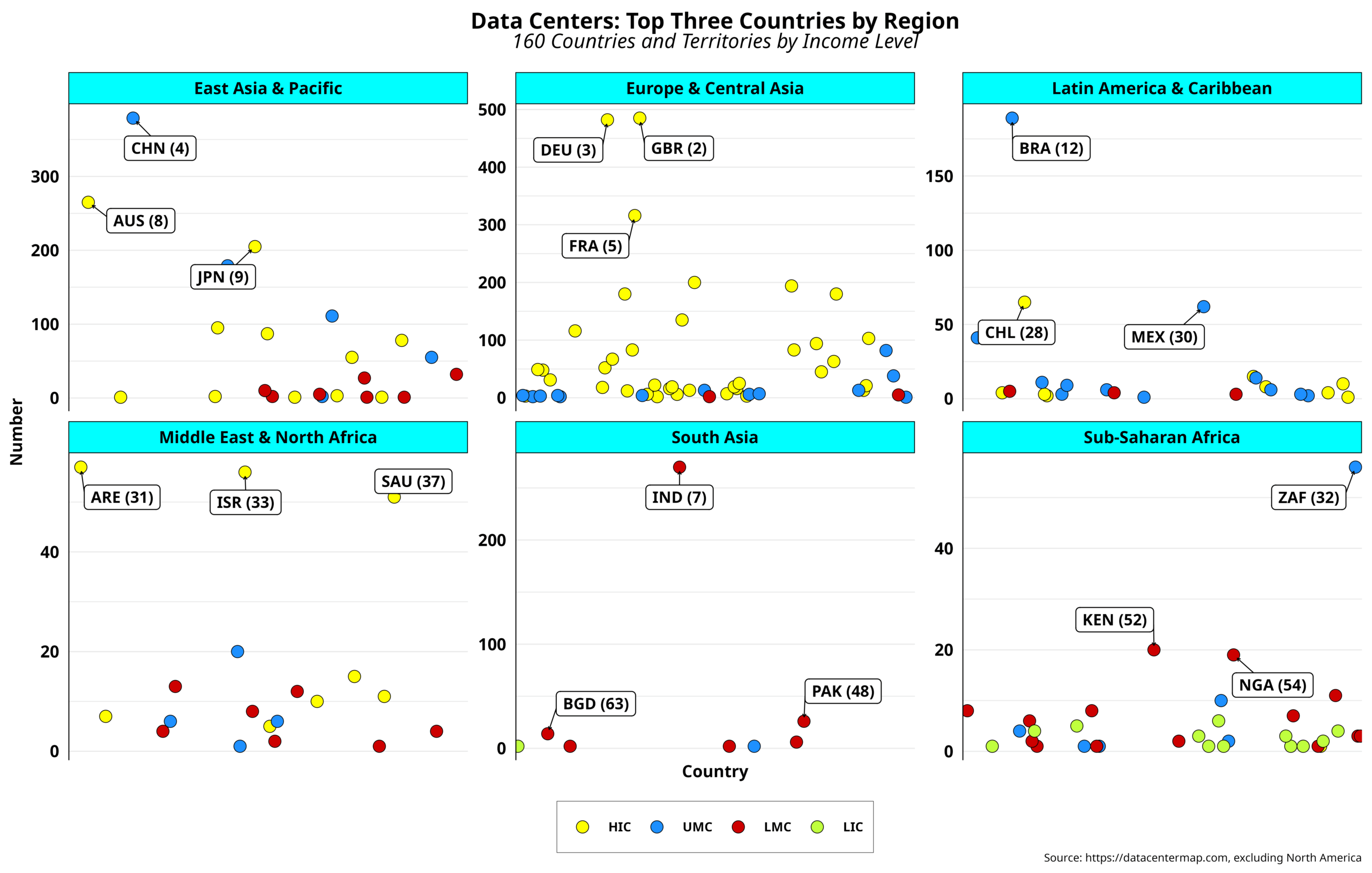
Data Center Centralization – II
By now, we are aware that data center deployments have a clear geographical bias. Indeed, one region is significantly ahead of the rest. Those comprised of mostly industrialized countries follow, albeit at a considerable distance. The rest can hardly breathe. In any case, such patterns could serve as the first clue about which areas are…
-
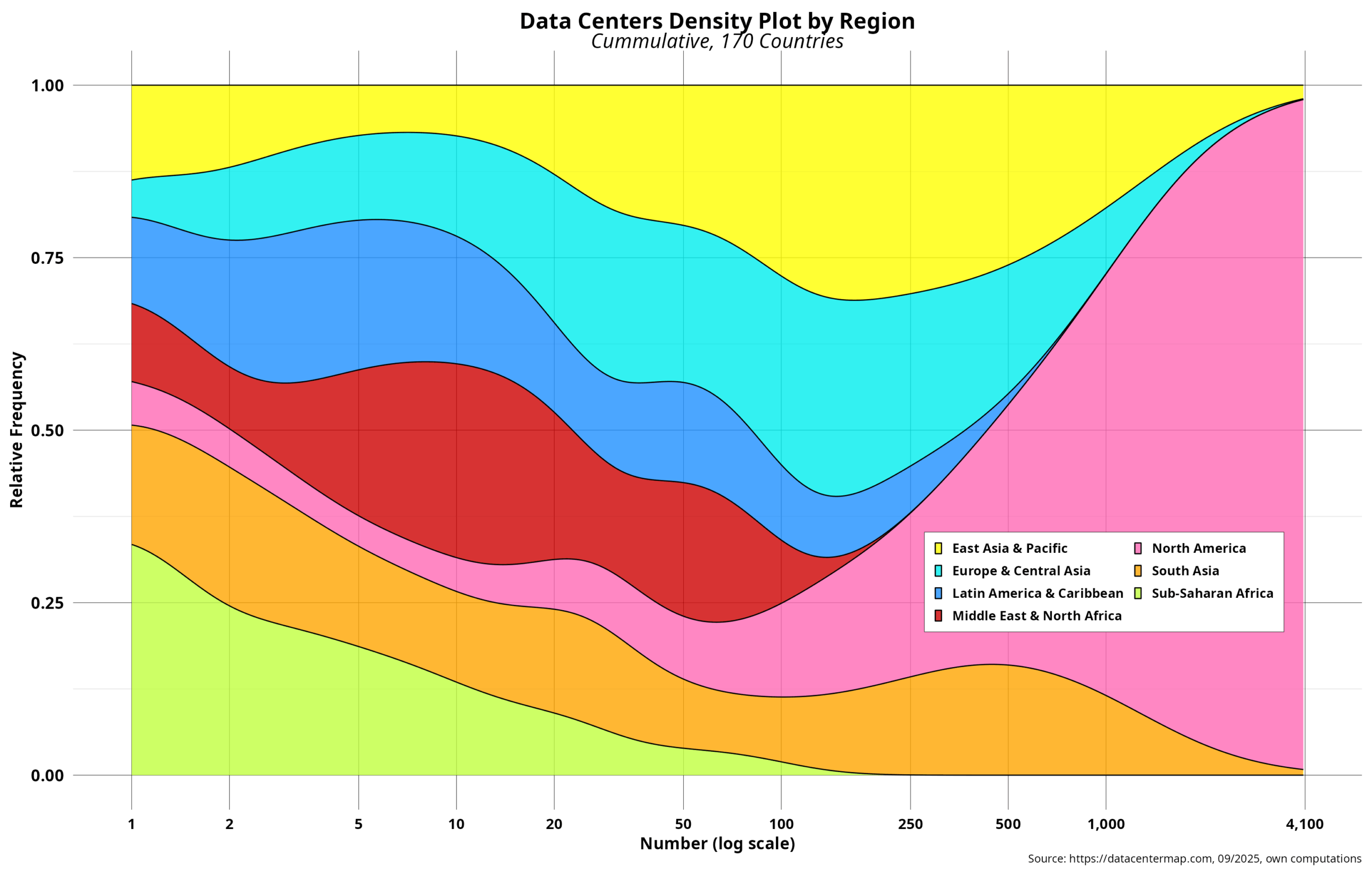
Data Center Centralization – I
As mentioned in the previous post, capital investments in data centers are expected to hit record sums. Predictions for 2030 suggest that nearly 7 trillion dollars will be heading that way, with 25 percent of that amount allocated to energy resources alone. Indeed, Big Tech is not expected to be the only player in this…
-
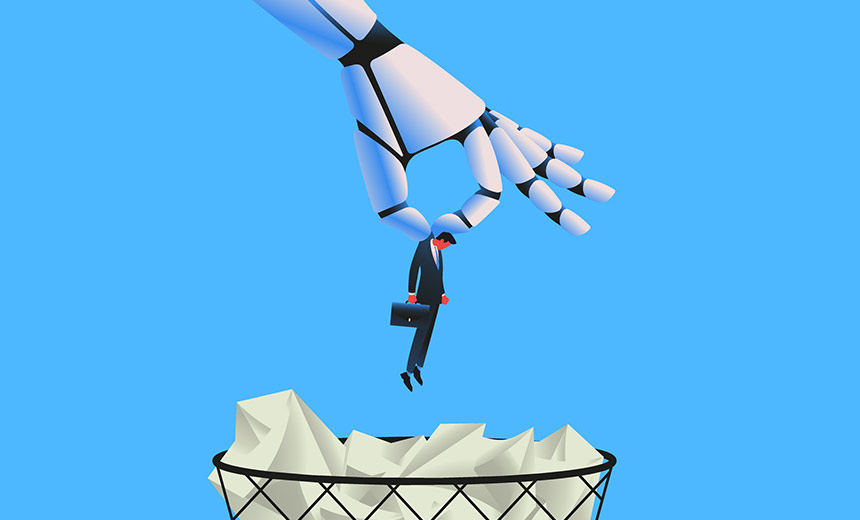
Laboring AI – II
Research on the labor impact of GPTs is mainly focused on advanced economies in the West. Implicitly, it is assumed that what thrives in the former should also blossom in all other nations, provided they have reached a certain level of development and have been able to actively integrate into the global economy. The rest…
-
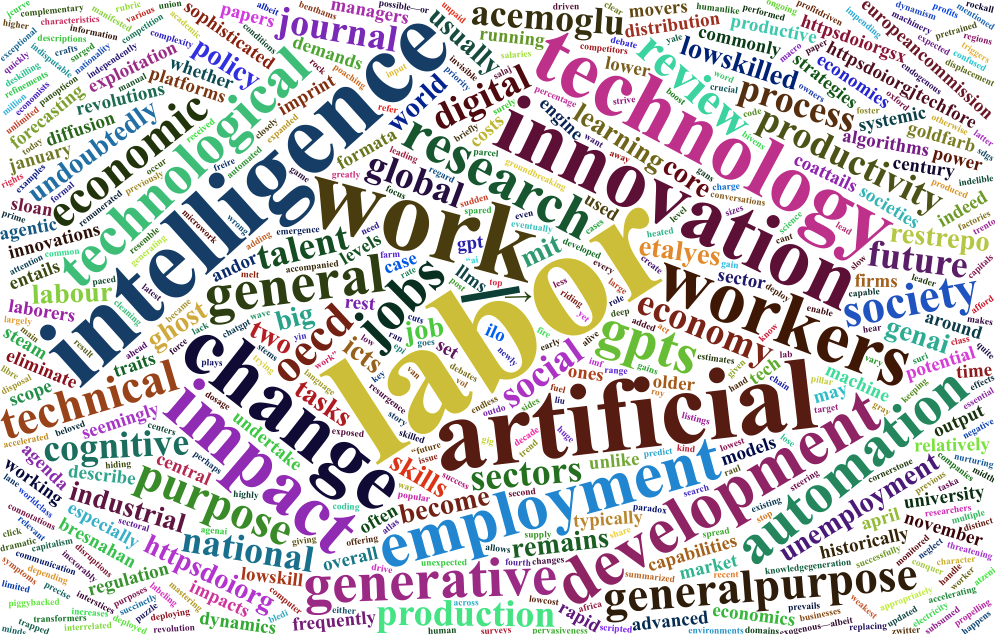
Laboring AI – I
The sudden resurgence of AI in the early 2010s, riding on the coattails of newly developed and groundbreaking machine learning and deep learning algorithms, was accompanied by the emergence of seemingly endless “future of work” conversations and, eventually, heated debates . By the end of the decade, generating target listings by job and/or sector had…
-
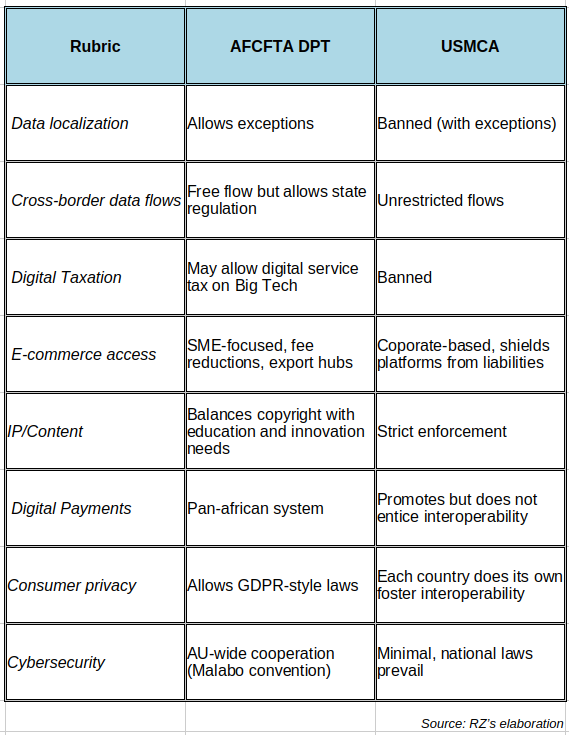
Digitalizing Sovereignty – V
A recent blog tackles the issues surrounding Africa’s digital sovereignty. It first defines sovereignty as a country’s capacity to independently create, develop, and govern AI. However, the supreme adjective I previously highlighted is missing from this definition. At any rate, the authors rightly emphasize that sovereignty comprises technical and political issues. On the technical side,…
-
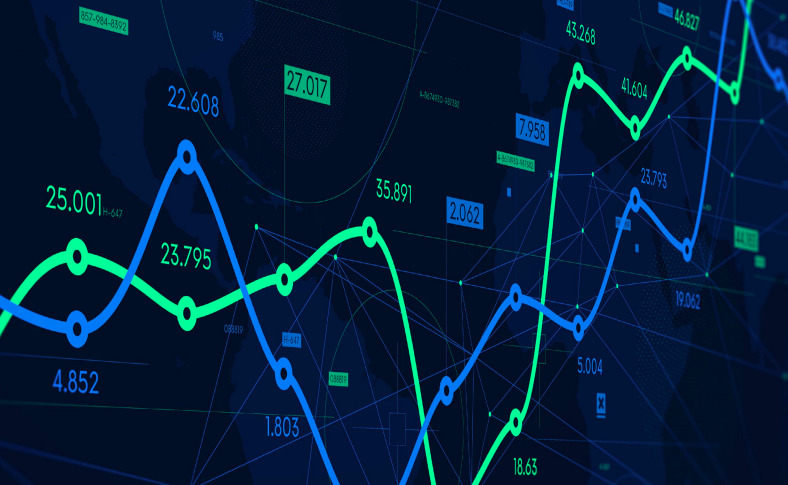
Digitalizing Sovereignty – IV
In 2006, a British mathematician running a customer-centric data science company coined the phrase “data is the new oil.” At the time, the Open Data movement was taking its first baby steps, while the expected digital data tsunami was gathering steam expeditiously. The saying was meant to pinpoint that data, like oil, needs to be…
-
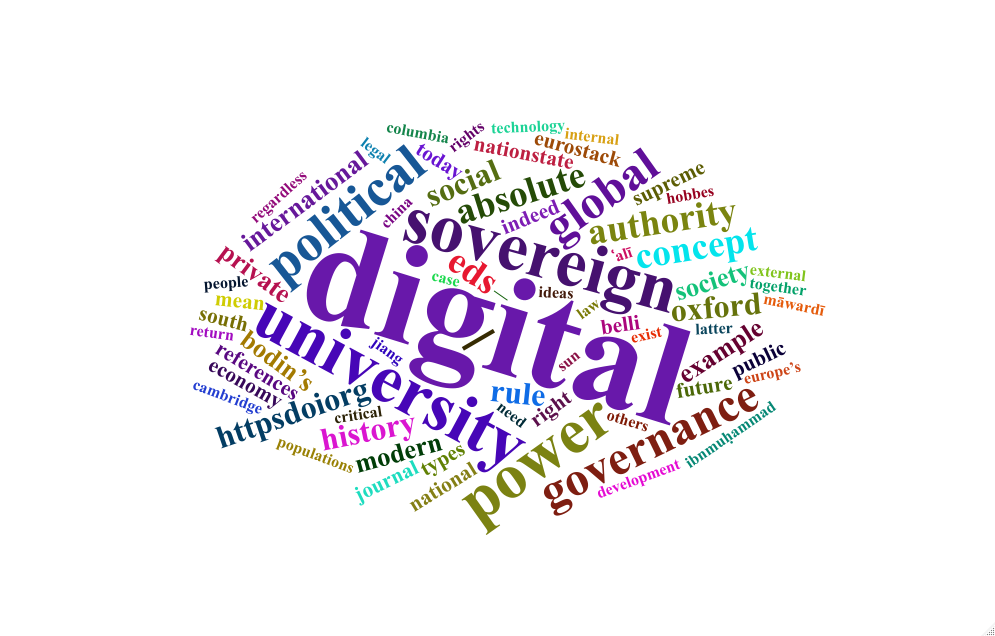
Digitalizing Sovereignty – III
Like governance, sovereignty has existed much longer than the modern digital universe. Thus, it has a rich history evolving over several centuries (see references below). Historical consensus holds that Jean Bodin was its conceptual father in the late 16th century, when the scourge of religious wars dominated Europe. Treaties such as the 1598 Edict of…
-
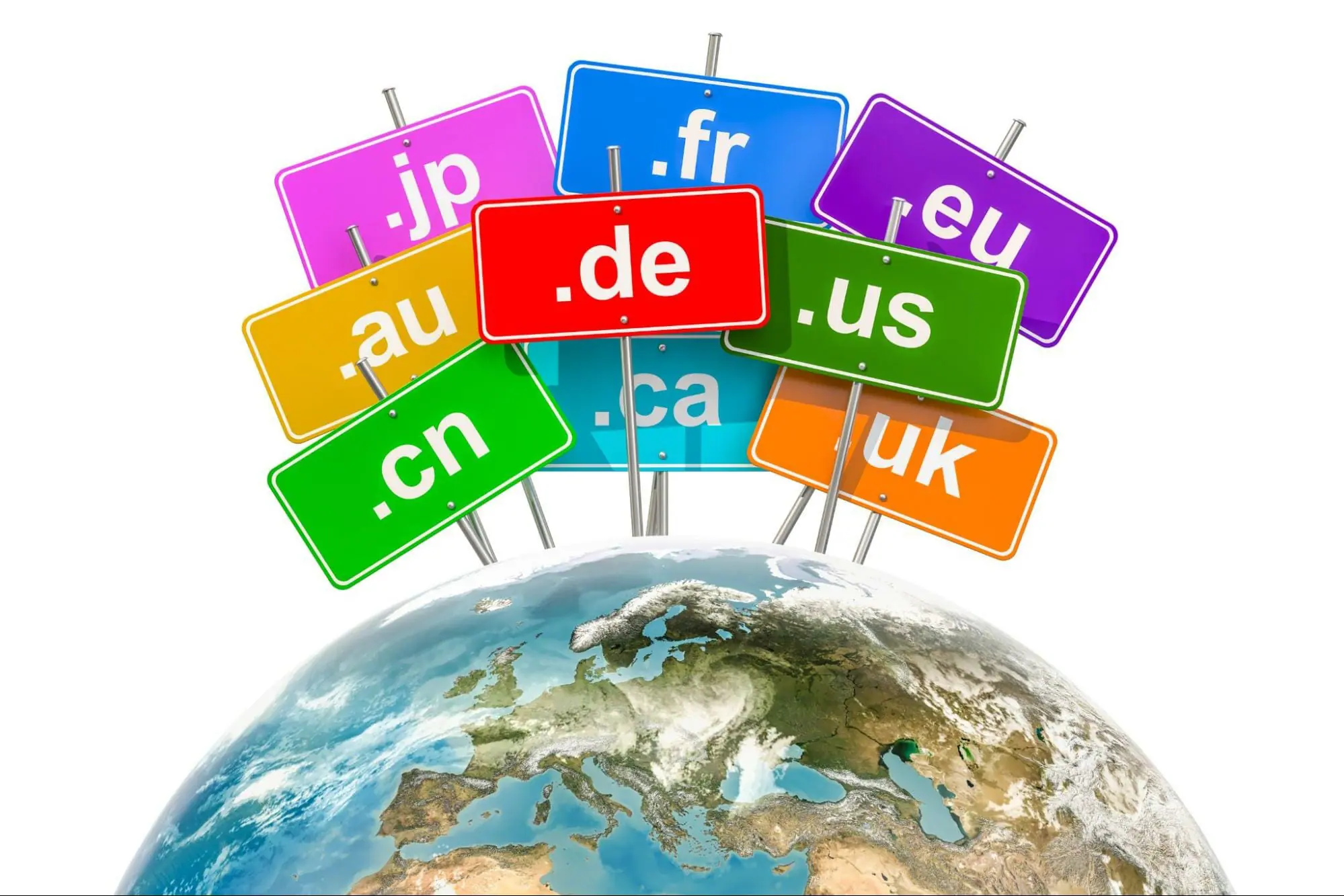
Digitalizing Sovereignty – II
Back in 1993, I was leading a global program‘s developmental and technical components to connect developing countries to the Internet. Its core goal was to spread information on sustainable development following the UN 1992 Earth Summit agreements. The program started with a pilot in ten countries and eventually expanded to 50 across all regions. As…
-
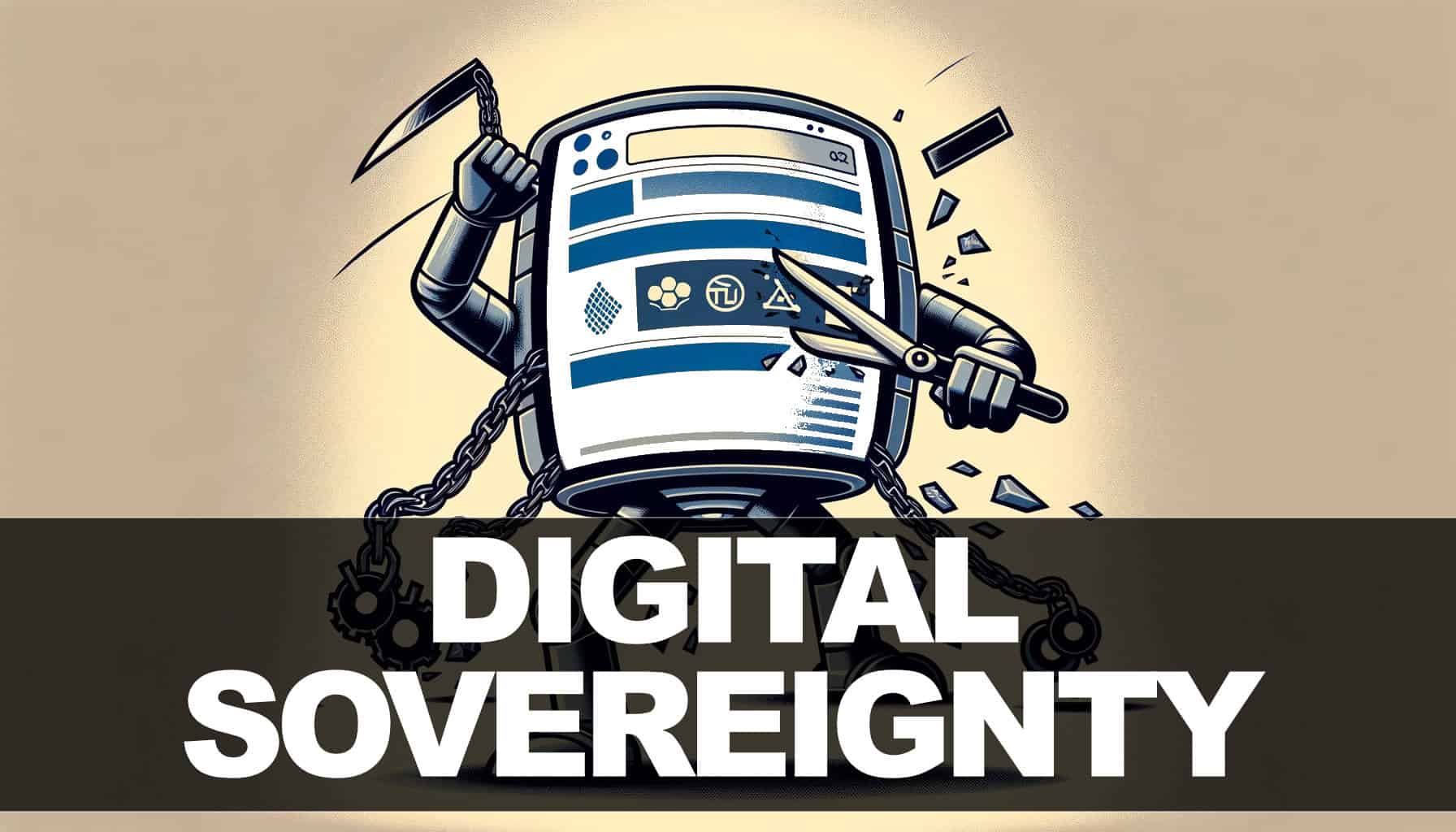
Digitalizing Sovereignty – I
A few months ago, I landed at New York’s JFK airport. Fortunately, my flight went smoothly and arrived on time in the early evening. After a long walk to the immigration booths, the cue lines were also extensive, as expected. Usually, arriving passengers are split into citizens, residents, and visitors (previously categorized as “aliens”). Diplomats…
-
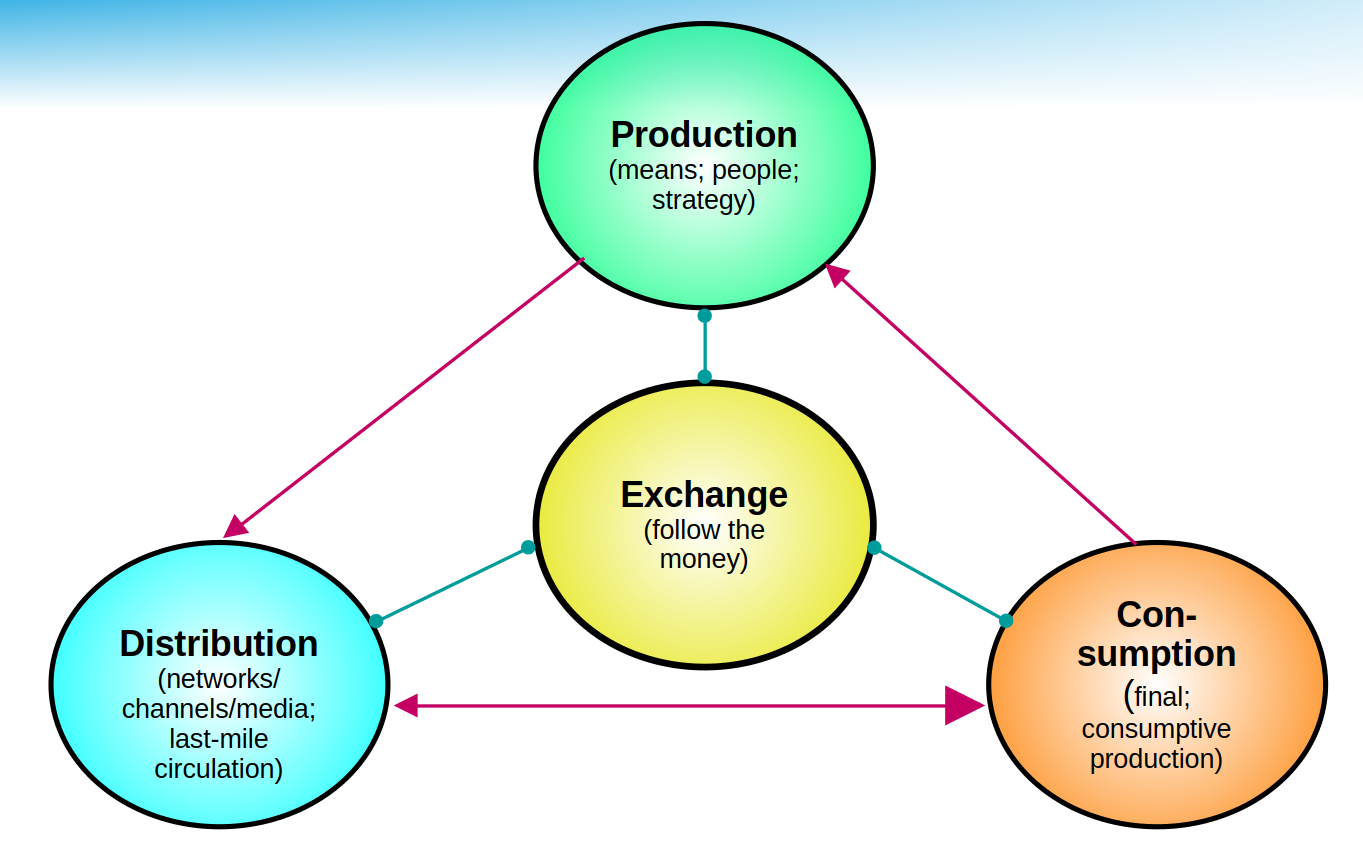
The Information Disorder: A Critique – III
As previously suggested, the three core information categories proposed by the Information Disorder Framework (IDF)—disinformation, misinformation and malinformation—are not orthogonal. Indeed, a given message can change from one to the other as it rapidly flows through the Internet pipes, trying to feel at home in noisy, warm data centers. Clearly, what to an “evil” agent…
-
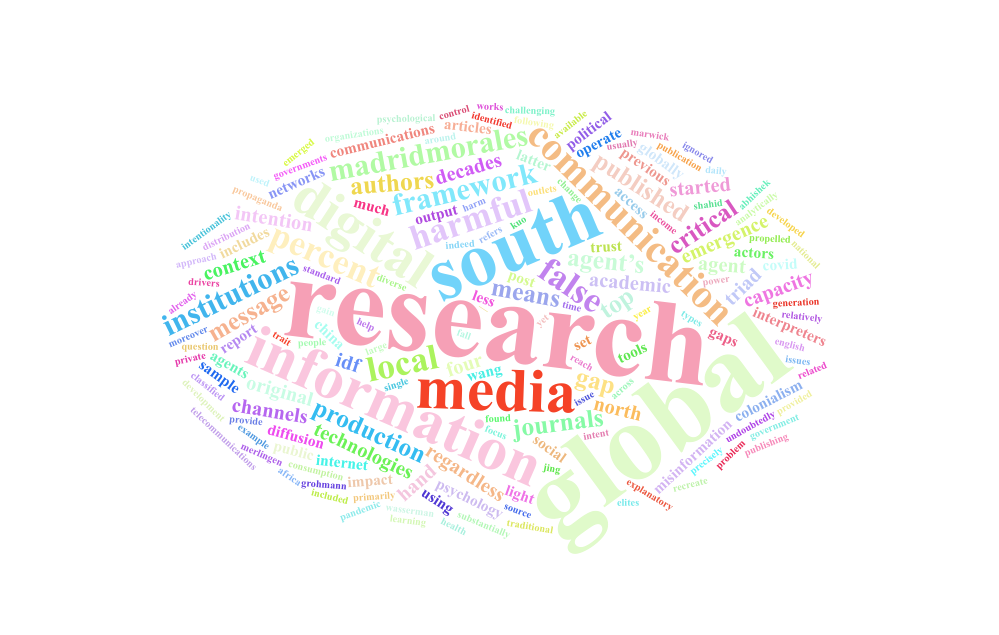
The Information Disorder: A Critique – II
While disinformation has been comfortably living in the beautiful and diverse geographies of the Global South for many decades, its grandchild, digital disinformation, is undoubtedly much younger, with not a single white hair yet visible. Indeed, digital disinformation is a 21st-century phenomenon, propelled by the emergence of the Internet and the seemingly unavoidable rise of…